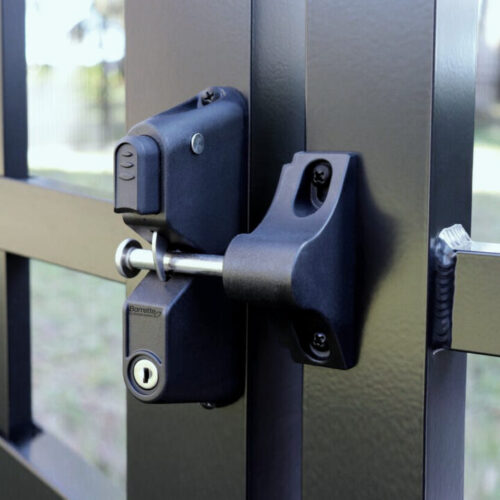Pool safety and Summertime
Pool safety and Summertime
Pool safety is important in the summertime. Yes. There's nothing quite like taking a refreshing dip in the pool. However, as enjoyable as pool time can be, it's crucial to prioritize safety, especially if you have children or pets. One of the key components of pool safety is the proper use of gate latches. In this blog post, we'll delve into the importance of gate latches and address some common questions regarding pool safety.
1. What is the best material for gate hardware?
When it comes to choosing gate hardware for your pool fence, durability and resistance to corrosion are essential factors to consider. Stainless steel and aluminum are two popular materials known for their longevity and resistance to rust. These materials can withstand exposure to pool chemicals and varying weather conditions, making them ideal choices for gate latches and hinges.
2. What is the safest fence for a pool?
A pool fence is a vital safety feature, and the safest option is one that meets specific criteria. The fence should be at least four feet high, with no horizontal bars or gaps that children or pets could squeeze through. Additionally, the gate should be self-closing and self-latching, ensuring it closes securely every time it's used. To enhance safety further, consider a fence with a climb-resistant design and a smooth surface to deter scaling. For more information there is a great article on Custom Fence Orlando about how to choose the right fence.
3. Do I need a lock on my pool gate?
Yes, you absolutely should have a lock on your pool gate. While self-closing and self-latching gates provide an initial layer of security, a lock adds an extra barrier to prevent unauthorized access. A high-quality pool gate latch, like the one available here, can provide peace of mind by ensuring that the gate remains securely closed when not in use.
4. What is the difference between a ball valve and a gate valve for a pool?
Ball valves and gate valves serve different purposes in a pool's plumbing system. Ball valves have a spherical disc that controls the flow of water, making them easy to turn on and off. Gate valves, on the other hand, have a flat gate-like disc that moves up and down to control water flow. Ball valves are typically recommended for pool applications as they are more reliable, easy to operate, and less prone to leaking.
5. Should the pool gate latch be on the inside or outside?
The pool gate latch should always be on the pool side, or the inside of the fence. Placing the latch on the outside could allow children to access the pool area from outside the perimeter, defeating the purpose of the fence. It's essential to ensure that the latch is at a height that is not easily reachable by small children.
In conclusion, pool safety is paramount, and gate latches play a crucial role in maintaining a secure pool environment. When selecting gate hardware, opt for durable materials like stainless steel or aluminum, and always install a reliable lock to prevent unauthorized access. By following these safety guidelines, you can enjoy your pool with confidence, knowing you've taken the necessary steps to protect your loved ones.
PooChoo
-
 Gravity Latch One Sided
$33.15
Gravity Latch One Sided
$33.15